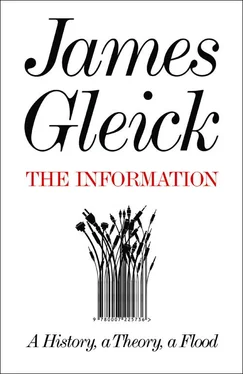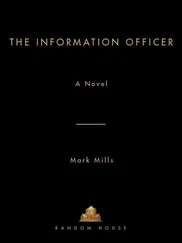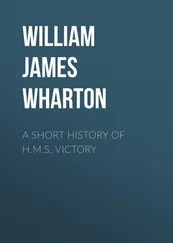One of Cawdrey’s hard usual words was science (“knowledge, or skill”). Science did not yet exist as an institution responsible for learning about the material universe and its laws. Natural philosophers were beginning to have a special interest in the nature of words and their meaning. They needed better than they had. When Galileo pointed his first telescope skyward and discovered sunspots in 1611, he immediately anticipated controversy— traditionally the sun was an epitome of purity—and he sensed that science could not proceed without first solving a problem of language:
So long as men were in fact obliged to call the sun “most pure and most lucid,” no shadows or impurities whatever had been perceived in it; but now that it shows itself to us as partly impure and spotty; why should we not call it “spotted and not pure”? For names and attributes must be accommodated to the essence of things, and not the essence to the names, since things come first and names afterwards.
When Isaac Newton embarked on his great program, he encountered a fundamental lack of definition where it was most needed. He began with a semantic sleight of hand: “I do not define time, space, place, and motion, as being well known to all,” he wrote deceptively. Defining these words was his very purpose. There were no agreed standards for weights and measures. Weight and measure were themselves vague terms. Latin seemed more reliable than English, precisely because it was less worn by everyday use, but the Romans had not possessed the necessary words either. Newton’s raw notes reveal a struggle hidden in the finished product. He tried expressions like quantitas materiae . Too hard for Cawdrey: “ materiall, of some matter, or importance.” Newton suggested (to himself) “that which arises from its density and bulk conjointly.” He considered more words: “This quantity I designate under the name of body or mass.” Without the right words he could not proceed. Velocity, force, gravity —none of these were yet suitable. They could not be defined in terms of one another; there was nothing in visible nature at which anyone could point a finger; and there was no book in which to look them up.
As for Robert Cawdrey, his mark on history ends with the publication of his Table Alphabeticall in 1604. No one knows when he died. No one knows how many copies the printer made. There are no records (“ records, writings layde up for remembrance”). A single copy made its way to the Bodleian Library in Oxford, which has preserved it. All the others disappeared. A second edition appeared in 1609, slightly expanded (“much inlarged,” the title page claims falsely) by Cawdrey’s son, Thomas, and a third and fourth appeared in 1613 and 1617, and there the life of this book ended.
It was overshadowed by a new dictionary, twice as comprehensive, An English Expositour: Teaching the Interpretation of the hardest Words used in our Language, with sundry Explications, Descriptions, and Discourses . Its compiler, John Bullokar, otherwise left as faint a mark on the historical record as Cawdrey did. He was doctor of physic; he lived for some time in Chichester; his dates of birth and death are uncertain; he is said to have visited London in 1611 and there to have seen a dead crocodile; and little else is known. His Expositour appeared in 1616 and went through several editions in the succeeding decades. Then in 1656 a London barrister, Thomas Blount, published his Glossographia: or a Dictionary, Interpreting all such Hard Words of Whatsoever Language, now used in our refined English Tongue . Blount’s dictionary listed more than eleven thousand words, many of which, he recognized, were new, reaching London in the hurly-burly of trade and commerce—
coffaor cauphe, a kind of drink among the Turks and Persians, (and of late introduced among us) which is black, thick and bitter, destrained from Berries of that nature, and name, thought good and very wholesom: they say it expels melancholy.
—or home-grown, such as “ tom-boy, a girle or wench that leaps up and down like a boy.” He seems to have known he was aiming at a moving target. The dictionary maker’s “labor,” he wrote in his preface, “would find no end, since our English tongue daily changes habit.” Blount’s definitions were much more elaborate than Cawdrey’s, and he tried to provide information about the origins of words as well.
Neither Bullokar nor Blount so much as mentioned Cawdrey. He was already forgotten. But in 1933, upon the publication of the greatest word book of all, the first editors of the Oxford English Dictionary did pay their respects to his “slim, small volume.” They called it “the original acorn” from which their oak had grown. (Cawdrey: “ akecorne, k fruit.”)
Four hundred and two years after the Table Alphabeticall , the International Astronomical Union voted to declare Pluto a nonplanet, and John Simpson had to make a quick decision. He and his band of lexicographers in Oxford were working on the P ’s. Pletzel, plish, pod person, point-and-shoot , and polyamorous were among the new words entering the OED . The entry for Pluto was itself relatively new. The planet had been discovered only in 1930, too late for the OED ’s first edition. The name Minerva was first proposed and then rejected because there was already an asteroid Minerva. In terms of names, the heavens were beginning to fill up. Then “Pluto” was suggested by Venetia Burney, an eleven-year-old resident of Oxford. The OED caught up by adding an entry for Pluto in its second edition: “1. A small planet of the solar system lying beyond the orbit of Neptune . . . 2. The name of a cartoon dog that made its first appearance in Walt Disney’s Moose Hunt , released in April 1931.”
“We really don’t like being pushed into megachanges,” Simpson said, but he had little choice. The Disney meaning of Pluto had proved more stable than the astronomical sense, which was downgraded to “small planetary body.” Consequences rippled through the OED . Pluto was removed from the list under planet n . 3a. Plutonian was revised (not to be confused with pluton , plutey , or plutonyl ).
Simpson was the sixth in a distinguished line, the editors of the Oxford English Dictionary , whose names rolled fluently off his tongue— “Murray, Bradley, Craigie, Onions, Burchfield, so however many fingers that is”—and saw himself as a steward of their traditions, as well as traditions of English lexicography extending back to Cawdrey by way of Samuel Johnson. James Murray in the nineteenth century established a working method based on index cards, slips of paper 6 inches by 4 inches. At any given moment a thousand such slips sat on Simpson’s desk, and within a stone’s throw were millions more, filling metal files and wooden boxes with the ink of two centuries. But the word-slips had gone obsolete. They had become treeware. Treeware had just entered the OED as “computing slang, freq. humorous”; blog was recognized in 2003, dot-commer in 2004, cyberpet in 2005, and the verb to Google in 2006. Simpson himself Googled often. Beside the word-slips his desk held conduits into the nervous system of the language: instantaneous connection to a worldwide network of proxy amateur lexicographers and access to a vast, interlocking set of databases growing asymptotically toward the ideal of All Previous Text. The dictionary had met cyberspace, and neither would be the same thereafter. However much Simpson loved the OED ’s roots and legacy, he was leading a revolution, willy-nilly—in what it was, what it knew, what it saw. Where Cawdrey had been isolated, Simpson was connected.
Читать дальше











